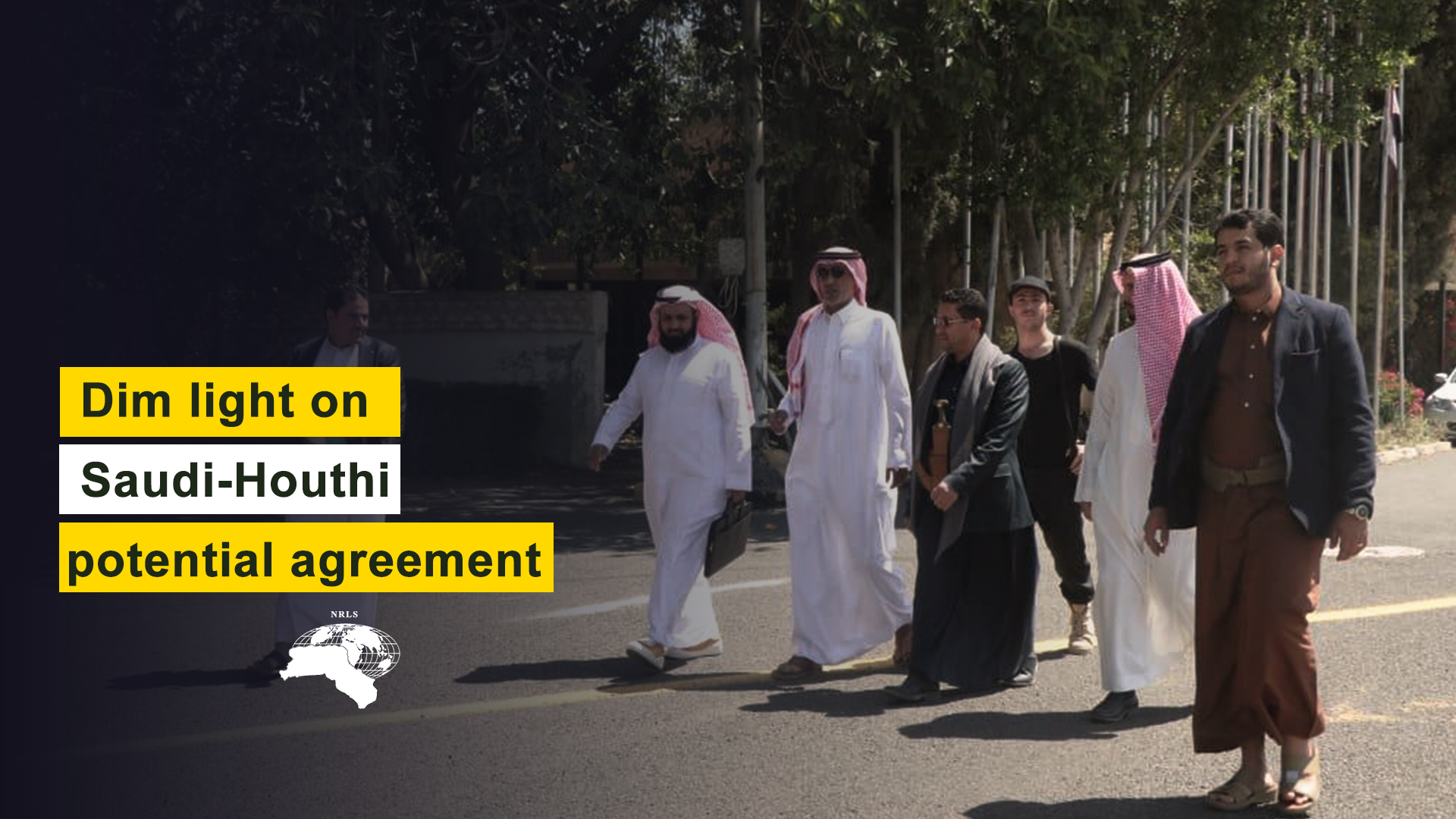Dim light on Saudi-Houthi potential agreement

It seems that the Saudi-Iranian agreement, under Chinese auspices, has begun to leave its effects on the Saudi-Houthi negotiations with Omani mediation, because Iran has a great influence on many areas of tension in the Middle East, such as Syria, Lebanon, Iraq and Yemen, especially in its northern part. The Saudi-Iranian agreement will reduce tension in the aforementioned countries because Iran has great influence in them, up to the presence of its-affiliated armed militia, such as the Lebanese, Syrian, and Iraqi Hezbollah, not to mention the Iranian Revolutionary Guard Corps (IRGC), Afghan Shiite factions, and others, in addition ot bases that contain weapons, ammunition, and drones with which Iran supplies its supporters through Syrian airports, and Yemeni and Iraqi ports. Rather, easing tensions may lead to normalization and the return of things to normal before the crises escalate and the necessities of intervention arise.
It seems that understandings have taken place between Saudi Arabia and Iran, especially with regard to the Yemeni file and its internal wars, that Iran pledges to stop supporting the Houthi militia with arms, ammunition and supplies, in return for accepting the Iranian presence in Syria, and it seems that this matter will be prompted by all Arab countries to accept the Iranian presence in Syria, especially the countries of the Gulf Cooperation Council (GCC).
Hence, we can say that the secret and public talks did not stop between the various Yemeni parties, as well as the Houthis, who control the capital, Sanaa, and its international airport, as well as the port of Hodeidah, which often received missiles and shipments of various Iranian weapons, that Iran refuses to recognize, although it seized more than once. It seems that the Omani mediation enjoys a high position of appreciation and confidence by all the Saudi, Iranian, Yemeni and even Western parties, because of its neutrality and balance, as it stands at the same distance from everyone, including the geographical aspect, so Oman has worked for months to achieve rapprochement between the conflicting parties within Yemen and between Saudi Arabia and Iran. It seems that the Sultanate of Oman is not the only one that has sought rapprochement and mediation. Rather, there are European and American parties seeking to stop the wars and resolve the Yemeni crisis, at least for humanitarian and relief reasons. Hence the Saudi and Houthi meeting, between Ambassador Muhammad Al Jaber and head of the political bureau of the Ansar Allah Houthi group, Muhammad al-Mashat, in the Yemeni capital, Sanaa, and in the presence of Omani mediation seems that it will bear fruit and the beginning of a positive openness on the part of all Arab and regional parties. The talks dealt with ways to establish peace in Yemen and reach an agreement for a permanent ceasefire.
It is likely that these talks were successful, due to the success of the Saudi-Iranian agreement under Chinese auspices and the approval of the United Nations and perhaps the United States and Europe, because of their importance to the success of peace efforts in the Gulf region, the Red Sea and the Bab al-Mandab Strait, and because of the vital and strategic interests of all parties in the aforementioned areas. This applies to Russian, European and even Arab interests.
The meeting of the Saudi and Omani delegations was with the representative and head of the Houthi political bureau at the presidential palace in Sanaa. The delegations expressed their gratitude for the Omani efforts and their role in bringing points of view closer in order to achieve peace and stability in the region. The agreement is based on agreeing to a truce of six months, as an initial stage to build confidence, then it will be followed by a period of negotiation and talks for a period of three months about the transitional phase, which will last for a period of two years, during which a final solution will be negotiated between all parties. It seems that the talks will focus on the preliminary steps between the two sides such as opening the ports controlled by the Houthis, opening Sanaa airport completely, paying the salaries of the employees within the framework of reconstruction efforts and a time frame for the exit of foreign forces from the country, and the exchange of prisoners between the two sides, as Saudi Arabia released 13 Houthi prisoners in exchange for one Saudi prisoner, and an exchange of prisoners will take place between the two sides on a larger scale as agreed upon by the two sides.
In short, the chances of this agreement are great in achieving success because of its paving international ground, as we noted, as well as its appropriate regional conditions.




